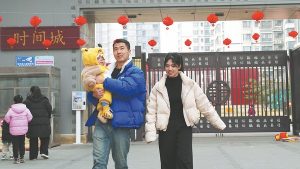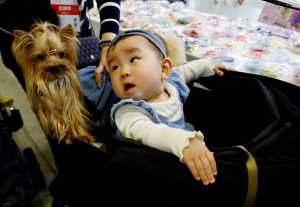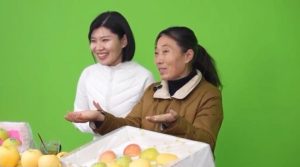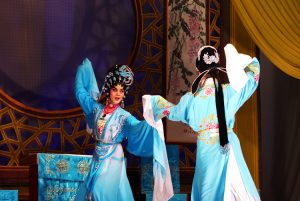Level 4
C-Dramas Become Increasingly Popular Overseas SAMPLE
C-Dramas Become Increasingly Popular Overseas
SAMPLE
中国电视剧在海外越来越火
中国电视剧在海外越来越火
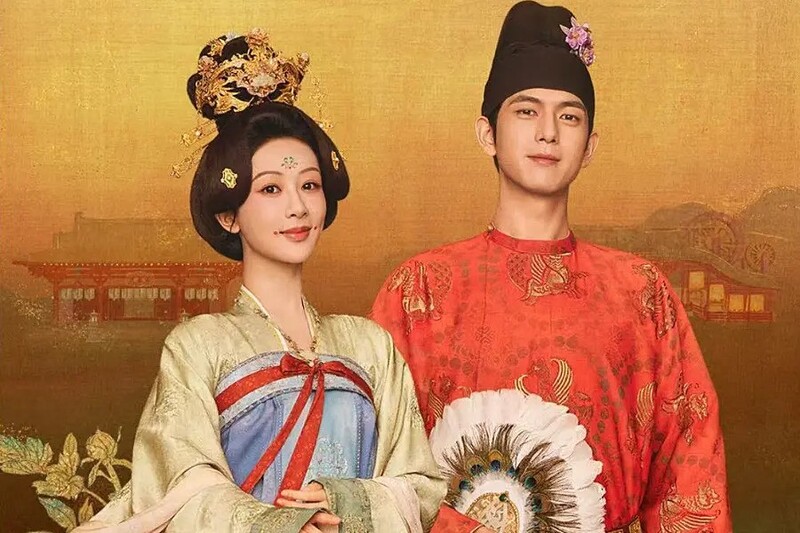
AA AA AA AA Simplified Traditional 


Pinyin



Pinyin
Keywords
受到 - shòudào - to receive (something abstract)
观众 - guānzhòng - spectators / audience / visitors (to an exhibition etc.)
播出 - bōchū - to broadcast / to put out TV programs
吸引 - xīyǐn - to attract (interest, investment etc.)
粉丝 - fěnsī - fan (loanword) / enthusiast for sb or sth
主角 - zhǔjué - leading role / lead
许多 - xǔduō - many / a lot of / much
生活 - shēnghuó - to live / life / activity / livelihood
困难 - kùnnan - difficult / challenging / straitened circumstances / difficult situation
演员 - yǎnyuán - actor or actress / performer
化妆 - huàzhuāng - to put on makeup
特点 - tèdiǎn - characteristic (feature) / trait / feature
出生 - chūshēng - to be born
古代 - gǔdài - ancient times / olden times
现代人 - xiàndàirén - modern man / Homo sapiens
思想 - sīxiǎng - thought / thinking / idea / ideology
社会 - shèhuì - society
平等 - píngděng - equal / equality
感情 - gǎnqíng - feeling / emotion / sensation / likes and dislikes / deep affection for sb or sth
细节 - xìjié - details / particulars
原因 - yuányīn - cause / origin / root cause / reason
Grammar
Verb + 出(来) - Expressed after a verb to indicate completion of an action for "to come up with" or "to come into being" with "Verb + chu(lai)"
最近几年,不少中国电视剧受到了国外观众的喜爱,比如已经在70多个国家播出的《国色芳华》。
这部电视剧播出后,很快吸引了很多外国粉丝。
《庆余年2》在Disney + 上播出,可以说是有史以来在Disney + 上最受欢迎的中国电视剧。
比如... - Expressing "for example / for instance..." with "bǐrú..."
最近几年,不少中国电视剧受到了国外观众的喜爱,比如已经在70多个国家播出的《国色芳华》。
之所以…,是因为… - Expressing "the reason why…, is because…" with "zhīsuǒyǐ…,shìyīnwèi…"
这部电视剧之所以被这么多人喜欢,不仅是因为故事吸引人,还因为演员的衣服和化妆都很漂亮,有唐朝的特点。
Subject + 被 + Doer + Verb Phrase - Expressed to shift the emphasis from the 'doer' of the action to the 'subject' affected by the action with "bèi"
这部电视剧之所以被这么多人喜欢,不仅是因为故事吸引人,还因为演员的衣服和化妆都很漂亮,有唐朝的特点。
不仅…,而且 / 还 / 也 … - Expressing "not only…but also..." with "bùjǐn...,érqiě / hái / yě…"
这部电视剧之所以被这么多人喜欢,不仅是因为故事吸引人,还因为演员的衣服和化妆都很漂亮,有唐朝的特点。
另(外) + Number + (Measure Word) + Object - Expressing "the other / another…" with "lìng(wài) + Number + (Measure Word) + Object"
在《国色芳华》之前,另外两部电视剧《大奉打更人》和《庆余年2》也在国外大火。
却... - Expressing "but / however" with "què..." (used to indicate something was contrary to expectations, often followed by a negative comment)
这部电视剧的主角是一个出生在古代却有着现代人思想的年轻人。
通过 + Agent / Method - Expressing "by means of / via (a certain process) with "tōngguò + Agent / Method" (figurative meaning of passing through a process to reach a desired outcome)
他想通过自己的努力把古代社会变成一个人人平等的世界。
…呢? - Expressed to soften the tone of questions with "...ne?" (used to make questions more indirect and uncertain in tone)
为什么国外的观众会喜欢中国电视剧呢?
首先…, 其次… - Expressing "firstly…, secondly…" with "shǒuxiān…, qícì…"
首先,他们觉得中国故事和西方故事很不一样。其次,在中国电视剧里,人和人的感情有更多的细节。
另外… - Expressing "in addition / besides..." with "lìngwài..."
另外,中国文化也是一个重要的原因。
据说… - Expressing "it is said that / reportedly…" with "jùshuō…"
据说很多人看完《国色芳华》后,就去了解唐朝历史了。
Proper Nouns
国色芳华 - Guósè Fānghuá - Flourished Peony (Chinese historical television series)唐朝 - Tángcháo - Tang dynasty (618-907)
大奉打更人 - Dàfèng Dǎgēngrén - Guardians of the Dafeng (Chinese television drama adapted from the web novel of the same name by Maibao Xiaolangjun)
庆余年2 - Qìng Yúnián 2 - Joy of Life Season 2 (Chinese television series that is based on the novel Qing Yunian (庆余年) by Mao Ni)
Idioms
有史以来 - yǒushǐyǐlái - since the beginning of history
Ready to complete the lesson's exercises?













